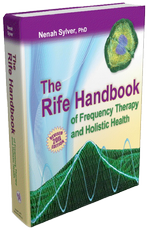Sexual Abuse
Sexual Abuse:
Childhood Molestation
and Adult Rape
Although evidence is accruing that males are sexually abused more often than people recognize, the reality still exists that if you’re born female, you have a one in three (some researchers say 50%) chance of being sexually assaulted at some point in your life.
Women who are molested as infants have a higher rate of emotional and physical disorders than those who are sexually assaulted as older children or adults. It is too simplistic to say that the terror and sorrow have caused a woman’s debilitated physical condition. The picture is much more complex (see the entry, "Stress").
Specific Related Health Condition
Vaginal Discomfort, Irritation and Inflammation, Bleeding, Sores, Discharge, Infections. Women who are violated vaginally commonly experience one or more of the above symptoms. The invasion of the vagina of a foreign object—be it a penis, finger, bottle, or something else—can frequently introduce viruses, bacteria, fungi or parasites that produce syphilis, gonorrhea and AIDS. Infections are often characterized by itching, burning, and various kinds of discharge that have foul odors and can be highly irritating.
Restorative Strategies: Rescue Cream (a homeopathic remedy available from the health food store). Consult with a health practitioner to identify what microorganisms are present; a holistic Gynecologist or Naturopath can prescribe natural remedies. Allopathic drugs should be a last resort. If the infection is from Candida Albicans (a type of yeast), a diet high in protein and low in sugar and starch will help eliminate it. Psychotherapy with an empathic and skilled counselor is advised to help deal with the emotional trauma associated with the physical condition.
Urinary Tract Infections of the Kidneys and Bladder. Many more women than men suffer from urinary tract infections for a number of reasons: 1) A woman’s bladder is proportionately smaller than a man’s—probably nature’s way of making room for a uterus; 2) Women have a greater chance than men of being sexually abused; and 3) Women’s urinary tract opening (the urethra) is right next to the opening of the vagina, so any infectious material introduced into the vagina also affects the urinary tract. Symptoms of infection are burning on urination, a constant need to urinate, the urge to urinate despite an empty or near-empty bladder, pain on urination, a discharge of minute drops of urine, blood in the urine, and pain in the pelvic area or lower back (the region of the kidneys).
Restorative Strategies: Warm baths with Epsom and sea salts. Get a diagnosis from a qualified health practitioner. Once you know what organism(s) are present, you can decide what therapies to use. Allopathic drugs are dangerous and should be a last resort. Even mainstream physicians have reported beneficial results with pure unsweetened cranberry juice (available from a health food store). Psychotherapy with an empathic and skilled counselor may help with the emotional aspect of the infection.
Headaches, Backaches, Muscle and Joint Pain, including Fibromyalgia. The aftereffects of sexual abuse can manifest in many ways. On a biochemical level, high levels of stress deplete minerals, including magnesium, which muscles require for relaxation.
Restorative Strategies: See an appropriate health care practitioner. Visits to a Massage Therapist and/or Chiropractor with a gentle approach might alleviate some of the physical pain. Some people find that hypnosis, meditation, and other relaxation techniques help with healing. Consider body-oriented psychotherapy as well.
Asthma and Respiratory Tract Infections. The aftereffects of sexual abuse can manifest in many ways. It is now widely recognized that asthma has a heavily emotional component, usually fear.
Restorative Strategies: See an appropriate health care practitioner. A naturopath might be helpful. Also consider body-oriented psychotherapy.
Chronic Depression. Depression is a normal response; it would be unusual if you weren’t depressed after a trauma like this.
Restorative Strategies: Psychotherapy, preferably body-oriented. Many women find it helpful to take extra B-vitamins, including Vitamin B-1 and niacin (Vitamin B-3, in its niacin rather than niacinimide form). Also see the entry, "Depression."
Eating Disorders. An alarmingly high number of women with eating disorders have a history of sexual abuse.
Restorative Strategies: Psychotherapy, preferably body-oriented. Also see the entry, "Eating Disorders and Weight Issues."
For much more detailed information
on what has been discussed here,
including a wide variety of other health-related topics,
see The Rife Handbook of Frequency Therapy
by this author.

Now available as a Hardcover
and in ALL formats!
as a printed/bound hardcover
as a Windows ![]() eBook
eBook
as a Mac eBook
eBook
for Tablets, iPads and Kindle 
for Android 




